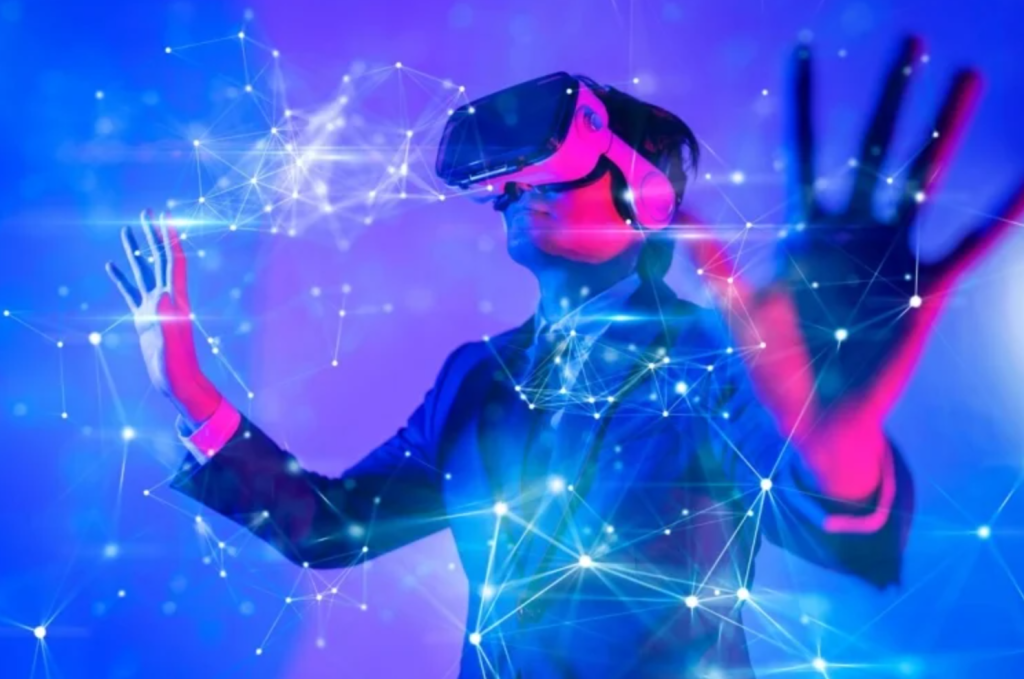Keywords: Metaverse, Economic Opportunity, Developing Countries, Technology, Future of Internet, Education, Healthcare, Urban Development

Introduction
The term ‘Metaverse’ has been creating waves in the technological and financial sectors recently. The term’s search volume soared tenfold from October 2021 to January 2022, according to Google Trends. Giants of the tech world, such as Facebook, now Meta, and Microsoft, have identified the Metaverse as a promising market opportunity. Yet, what exactly does the Metaverse mean, and how might it impact developing countries? This article delves into the potential benefits the Metaverse could bring to sectors such as education, healthcare, and urban development.
Deciphering the Metaverse
While there’s no universally accepted definition of the Metaverse yet, it broadly refers to a virtual space where physical reality and Extended Reality (XR)—an umbrella term for Augmented Reality (AR), Virtual Reality (VR), and Mixed Reality technologies—converge. The Metaverse offers a virtual environment for interaction, connection, sharing, and collaboration, enabling individuals to perform virtually all activities they could in the real world.
The advent of Web 3.0—a multidimensional network—will supplement the Metaverse. This combination could trigger significant advancements in data capture, transmission, and storage technologies, requiring considerable investments in digital infrastructure.
Economic Opportunities in the Metaverse
The Metaverse presents vast economic opportunities, given the global Metaverse market was valued at $4.69 billion in 2020, and its compound annual growth rate is estimated to be 43.3% from 2020 to 2027.
The increasing interest in immersive technologies could witness a steady progression of XR technologies and ‘Digital Twin’ technologies, bringing us closer to realizing one or multiple visions of the Metaverse.
Metaverse for Developing Countries: Education, Healthcare, and Urban Development
In developing countries, the Metaverse could be a game-changer across various sectors. For instance, in education, it can provide immersive, interactive learning environments, allowing students to grasp complex concepts through experiential learning.
In healthcare, the Metaverse can facilitate telemedicine, remote surgeries, and medical training, overcoming geographical barriers and improving access to quality healthcare.
In urban development, the Metaverse can be utilized to design and test urban infrastructure and public services in a virtual environment, thereby saving costs and minimizing risks.
Conclusion
In conclusion, while the Metaverse is still in its nascent stages, its potential to reshape the internet landscape and provide transformative solutions for various sectors is undeniable. Especially for developing countries, the Metaverse could unlock new avenues for economic growth and social development.
What are your thoughts on the Metaverse’s potential impact on developing countries? Feel free to ask any questions or leave your comments. Let’s delve deeper into this exciting discussion about the future of technology and its economic implications.





